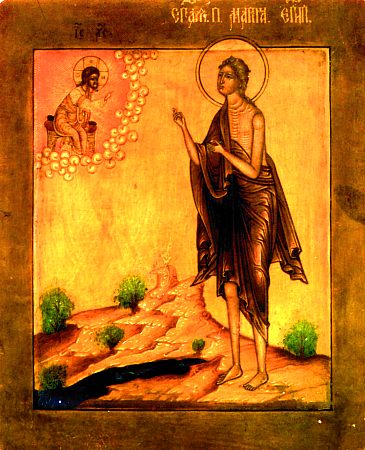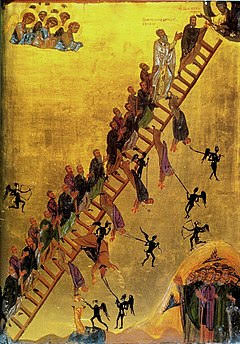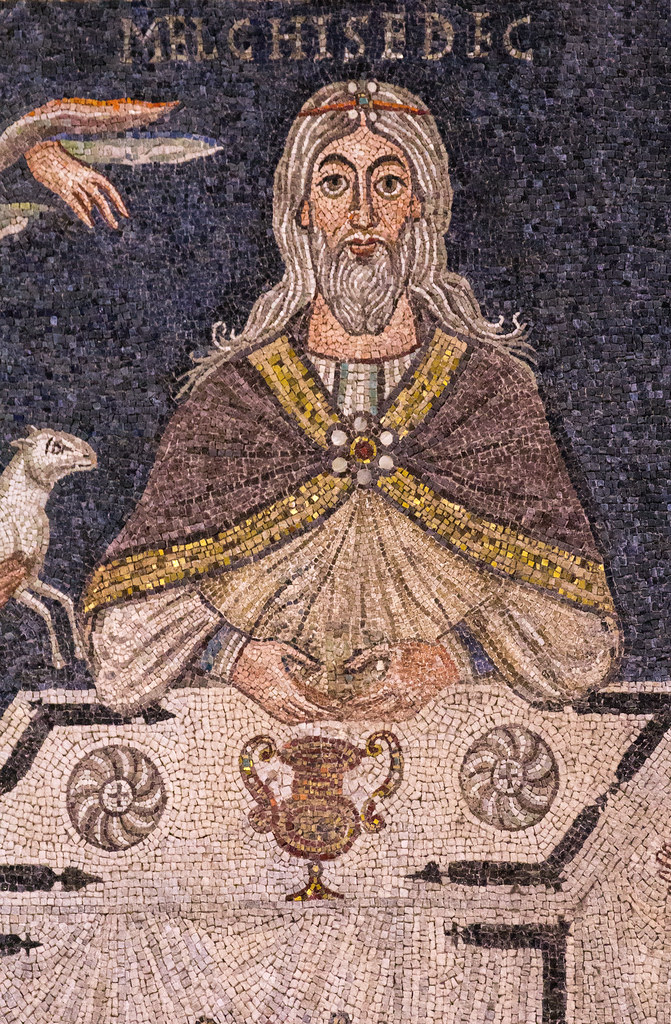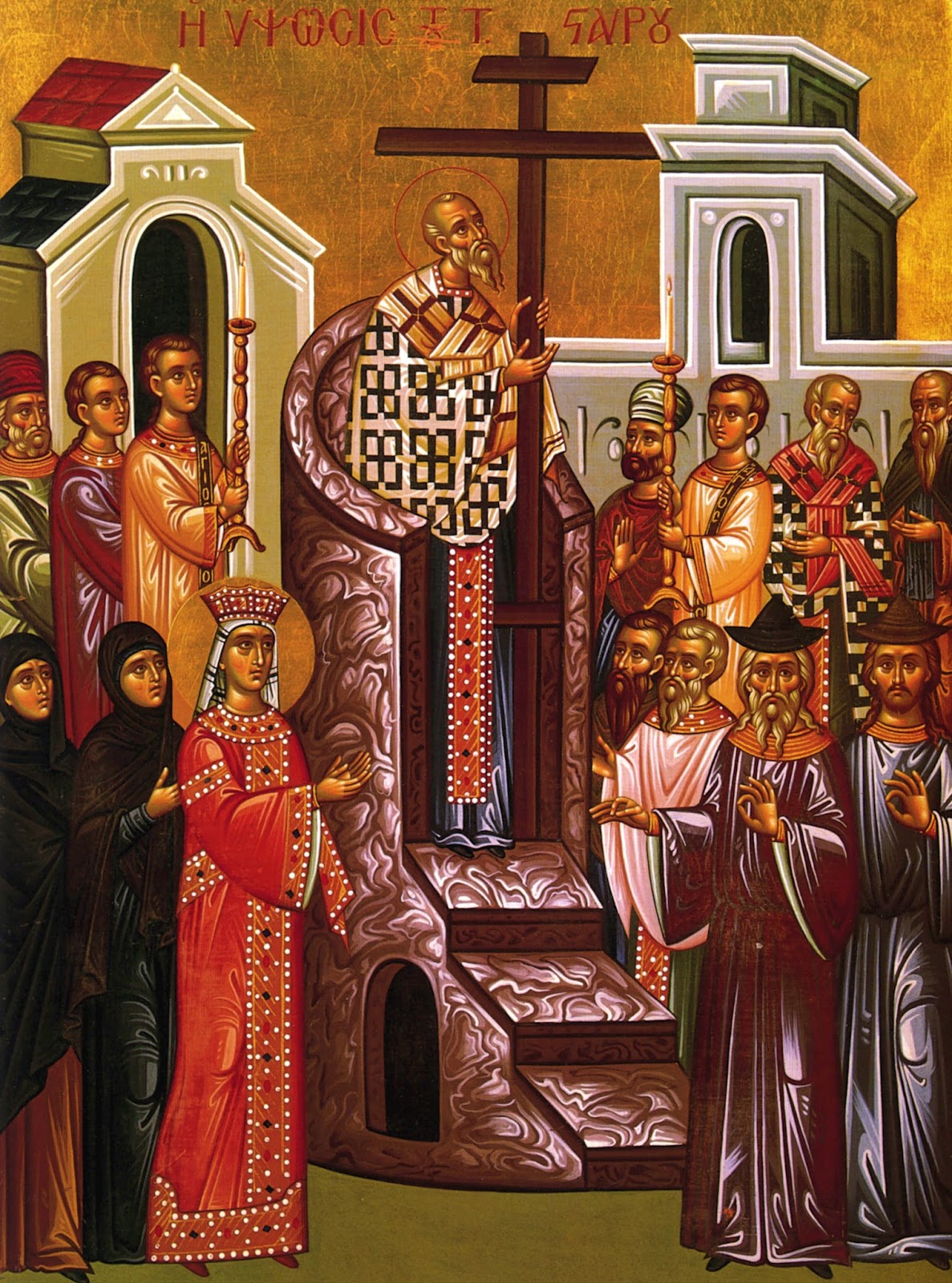Sunday Epistles & Gospels
Third Sunday of Luke
Urgency & Irony

Working together with Him, then, we entreat you not to accept the grace of God in vain. For He says,
“At the acceptable time I have listened to you, and helped you on the day of salvation.”
Behold, now is the acceptable time; behold, now is the day of salvation.
We put no obstacle in any one’s way, so that no fault may be found with our ministry, but as servants of God we commend ourselves in every way: through great endurance, in afflictions, hardships, calamities, beatings, imprisonments, tumults, labors, watching, hunger; by purity, knowledge, forbearance, kindness, the Holy Spirit, genuine love, truthful speech, and the power of God; with the weapons of righteousness for the right hand and for the left; in honor and dishonor, in ill repute and good repute. We are treated as impostors, and yet are true; as unknown, and yet well known; as dying, and behold we live; as punished, and yet not killed; as sorrowful, yet always rejoicing; as poor, yet making many rich; as having nothing, and yet possessing everything.
The words “urgency” and “irony” are the two things that jump out at me from the Epistle of II Corinthians 6:1-10. First, urgency. In 6:2, Saint Paul tells us, “Behold, now is the acceptable time; behold, now is the day of salvation.” There is an urgency there. He tells us not to put off our journey to salvation.
There are many things in life where we will ask ourselves, “Is this the right time to do (fill in the blank)?” Some of the things that fill these blanks might be “to change jobs” or “to get married” or “to have children” or “to retire.” For each of these things, there are probably wrong times to do them and there are probably more favorable times to do them, but there is no exact time to do them. Many times in life we procrastinate in starting a diet or a new exercise program or to confront someone or to smooth over a problem.
Saint Paul tells us that we need to have an urgency when it comes to our Christian faith. The best time to take strides in our journeys to Christ is TODAY. Now. This moment. Any moment can become a Christ-centered moment. So, let’s not wait any longer to grow in Him.
Saint Paul continues by saying, “We put no obstacle in any one’s way, so that no fault may be found with our ministry” (6:3). Every one of us who is involved in the church community is involved in a ministry. At the very least we are all involved in the liturgical ministry of the church. If you attend a Parish Assembly meeting or cast a vote for Parish Council, you are involved in the administration of the church. Then there are the other ministries — choir, GOYA, Philoptochos, etc. Ask yourself if there is anything you are doing that could be construed as putting an obstacle in someone’s way. Gossip is an obstacle. So is negativity. Talking in church or forcefully talking at a Parish Assembly meeting are obstacles. If we are honest, we probably all throw up some obstacle at some time. So it is incumbent on each of us to make sure we are not throwing up any obstacles that get in the way of anyone’s spiritual journey. That journey is hard enough. Rather than be “obstacle-throwers,” we need more people who are “obstacle removers” and “encouragers.”
Saint Paul mentions some of the obstacles to the Christian journey: “afflictions, hardships, calamities, beatings, imprisonments, tumults, labors, watching, hunger.” (6:4-5) He also mentions the ways that obstacles are overcome and ways that we help others to overcome them: “purity, knowledge, forbearance (patience) kindness, the Holy Spirit, genuine love, truthful speech and the power of God” (6:6-7). As we face obstacles and challenges, we are reminded to leave room for the Holy Spirit and for the power of God to manifest themselves. We aren’t expected to have all the solutions. When we come to a challenge with a Christ-centered approach, with purity, knowledge, patience, etc., then we can experience the power of God and the grace of the Holy Spirit.
Finally, Saint Paul reminds us of how those who are faithful to God may find themselves treated: as imposters and as those punished. He tells us that in these moment is when we can flourish, that the consequences of things that are seen as negative actually are very positive. Even though one may be seen as an imposter, it doesn’t mean he or she isn’t truthful and that God knows this. One can labor in obscurity and still be well known by God. One can die and yet live—this is eternal life. One can be punished unjustly and yet unjust punishment cannot kill the spirit. One can be sorrowful over the loss of something or someone but can still find hope in Christ, something for which we can always rejoice. It doesn’t take riches to make someone else spiritually rich. In fact one can be materially poor (as monastics are) but can make many rich, by teaching them about Christ. Finally, one can have nothing and yet possess everything. Why? Because the most important thing in life we can have is our faith. If we possess all kinds of material things but have no faith, we have nothing, because we can’t take our things with us when we go to meet the Lord at His Judgement seat. On the other hand, one can possess everything, but if he has no spiritual riches, at the moment of death, he really will have nothing. Ironically, one need not be materially rich to be spiritually rich. One need not be filled with human joy in order to have spiritual joy.
Second Resurrectional Kathisma of the first set
Grave Mode
Translated by Fr. Seraphim Dedes
Your three-day entombment You despoiled death.
By Your life-bearing rising You have resurrected corrupted man, in Your love for humanity, O Christ God. Glory to You.
The Revised Standard Version of the Bible is copyrighted 1946, 1952, 1971, and 1973 by the Division of Christian Education of the National Council of the Churches of Christ in the U.S.A. and used by permission. From the Online Chapel of the Greek Orthodox Archdiocese of America.
This article was originally published on October 5, 2019



